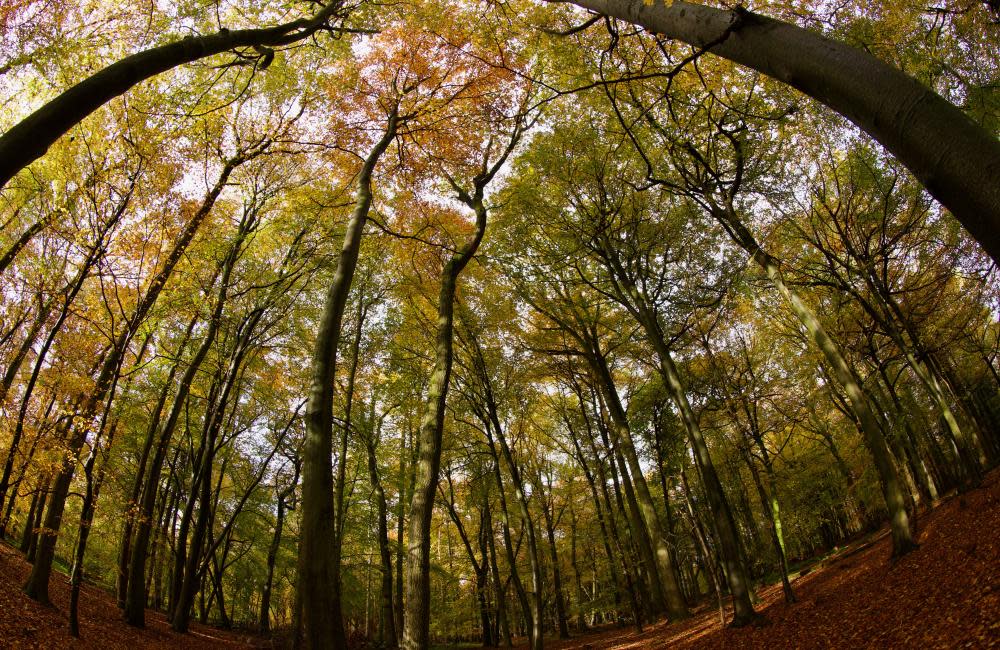We’re going to need a bigger planet: the problem with fixing the climate with trees

As the United Nations Cop26 climate conference in Glasgow winds down, many world leaders and corporate boards are embracing an increasingly popular idea to solve climate change: trees.
The United Arab Emirates – one of the biggest oil producers in the world – promised to plant 100m mangroves by 2030. India said it aims to plant enough trees to cover a third of its land area with forests. Earlier this month the Amazon founder, Jeff Bezos, announced a $1bn fund towards planting trees, “revitalizing” grasslands in Africa and restoring landscapes across the US. And at the start of the conference, more than 100 countries pledged to halt and reverse deforestation by 2030. “These great teeming ecosystems – these cathedrals of nature – are the lungs of our planet,” Boris Johnson said, exalting the effort.
Related: Could planting a trillion trees help stop global heating? This man thinks so
Trees and forests, which absorb carbon dioxide, are indeed crucial to slowing global heating.
But environmental groups and climate change researchers say there’s a serious problem with overrelying on such pledges: there just isn’t enough land on Earth to plant enough trees to soak up all the carbon that big polluters keep spewing into the atmosphere.
To achieve “net zero” by 2050 using “land-based” carbon removal methods – a category that includes tree-planting, reforestation projects and land management techniques that help lock more carbon in soil – “would require at least 1.6bn hectares of new forests, equivalent to five times the size of India or more than all the farmland on the planet”, a recent analysis by Oxfam found.
The oil company Shell would need to use 28.6m hectares (70.7m acres) of land – an area roughly the size of Italy – to offset 35% of its emissions by 2050 using such techniques, the report found. Ethiopia would need to use 50–60% of its land to meet current offset goals, Switzerland could need more than 830,000 hectares, and the EU could need up to 90m hectares.
“Nature and land-based carbon removal schemes are an important part of the mix of efforts needed to stop global emissions, but they must be pursued in a much more cautious way,” said Nafkote Dabi, the climate change lead for Oxfam International.
The idea of harnessing trees to solve the global climate crisis has long been appealing. In the US, tree-planting schemes have broad, bipartisan support, with 90% of Americans favoring planting about a trillion trees around the world to absorb carbon emissions, according to a 2020 Pew survey. As Mark Benioff, the billionaire CEO of Salesforce, put it last year after promising funds to plant 100m of them: “Nobody is against trees.”
The growing enthusiasm for such planting schemes was bolstered by a 2019 study in Science, which estimated that 900m hectares of available land around the world could hold more than a trillion more trees, which could be harnessed in the fight against global heating.
But critics soon pointed out that the study made flawed assumptions about what land was “available” for tree planting, how many trees that land could hold, and how much carbon those trees could take in. The journal published five responses outlining concerns, one of which concluded: “The emerging global political myth of massive tree planting and restoration as a panacea for global warming requires an unrealistically large area” – far more than the study suggested.
At worst, tree planting schemes – beyond being ineffectual – can harm or displace vulnerable communities. In Pakistan, a “Billion Tree Tsunami” project launched in 2014 destroyed the pasturing lands of nomadic Gujjar goat-herders. “Conservation appears to be promoting further marginalization,” wrote Usman Ashraf, a political ecologist who documented the impacts of the project in Pakistan’s Khyber Pakhtunkhwa province.
As the zeal for tree planting projects grows, so does the backlash against them. Last week, Indigenous activists at Cop26 called carbon offset schemes “a new form of colonialism”. And before walking out of a conference event on offsets, activist Greta Thunberg urged attendees: “Stop greenwashing.”

